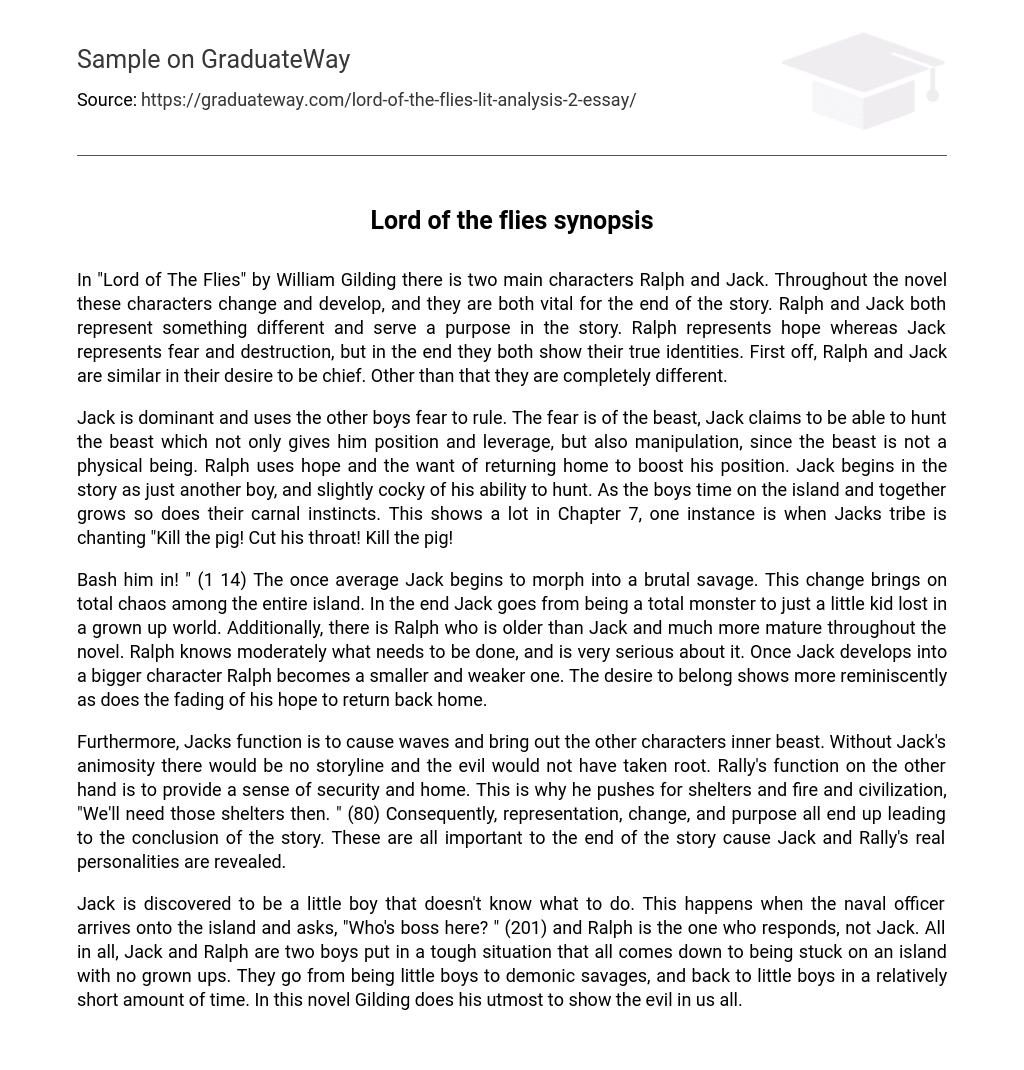In “Lord of The Flies” by William Gilding there is two main characters Ralph and Jack. Throughout the novel these characters change and develop, and they are both vital for the end of the story. Ralph and Jack both represent something different and serve a purpose in the story. Ralph represents hope whereas Jack represents fear and destruction, but in the end they both show their true identities. First off, Ralph and Jack are similar in their desire to be chief. Other than that they are completely different.
Jack is dominant and uses the other boys fear to rule. The fear is of the beast, Jack claims to be able to hunt the beast which not only gives him position and leverage, but also manipulation, since the beast is not a physical being. Ralph uses hope and the want of returning home to boost his position. Jack begins in the story as just another boy, and slightly cocky of his ability to hunt. As the boys time on the island and together grows so does their carnal instincts. This shows a lot in Chapter 7, one instance is when Jacks tribe is chanting “Kill the pig! Cut his throat! Kill the pig!
Bash him in! ” (1 14) The once average Jack begins to morph into a brutal savage. This change brings on total chaos among the entire island. In the end Jack goes from being a total monster to just a little kid lost in a grown up world. Additionally, there is Ralph who is older than Jack and much more mature throughout the novel. Ralph knows moderately what needs to be done, and is very serious about it. Once Jack develops into a bigger character Ralph becomes a smaller and weaker one. The desire to belong shows more reminiscently as does the fading of his hope to return back home.
Furthermore, Jacks function is to cause waves and bring out the other characters inner beast. Without Jack’s animosity there would be no storyline and the evil would not have taken root. Rally’s function on the other hand is to provide a sense of security and home. This is why he pushes for shelters and fire and civilization, “We’ll need those shelters then. ” (80) Consequently, representation, change, and purpose all end up leading to the conclusion of the story. These are all important to the end of the story cause Jack and Rally’s real personalities are revealed.
Jack is discovered to be a little boy that doesn’t know what to do. This happens when the naval officer arrives onto the island and asks, “Who’s boss here? ” (201) and Ralph is the one who responds, not Jack. All in all, Jack and Ralph are two boys put in a tough situation that all comes down to being stuck on an island with no grown ups. They go from being little boys to demonic savages, and back to little boys in a relatively short amount of time. In this novel Gilding does his utmost to show the evil in us all.





